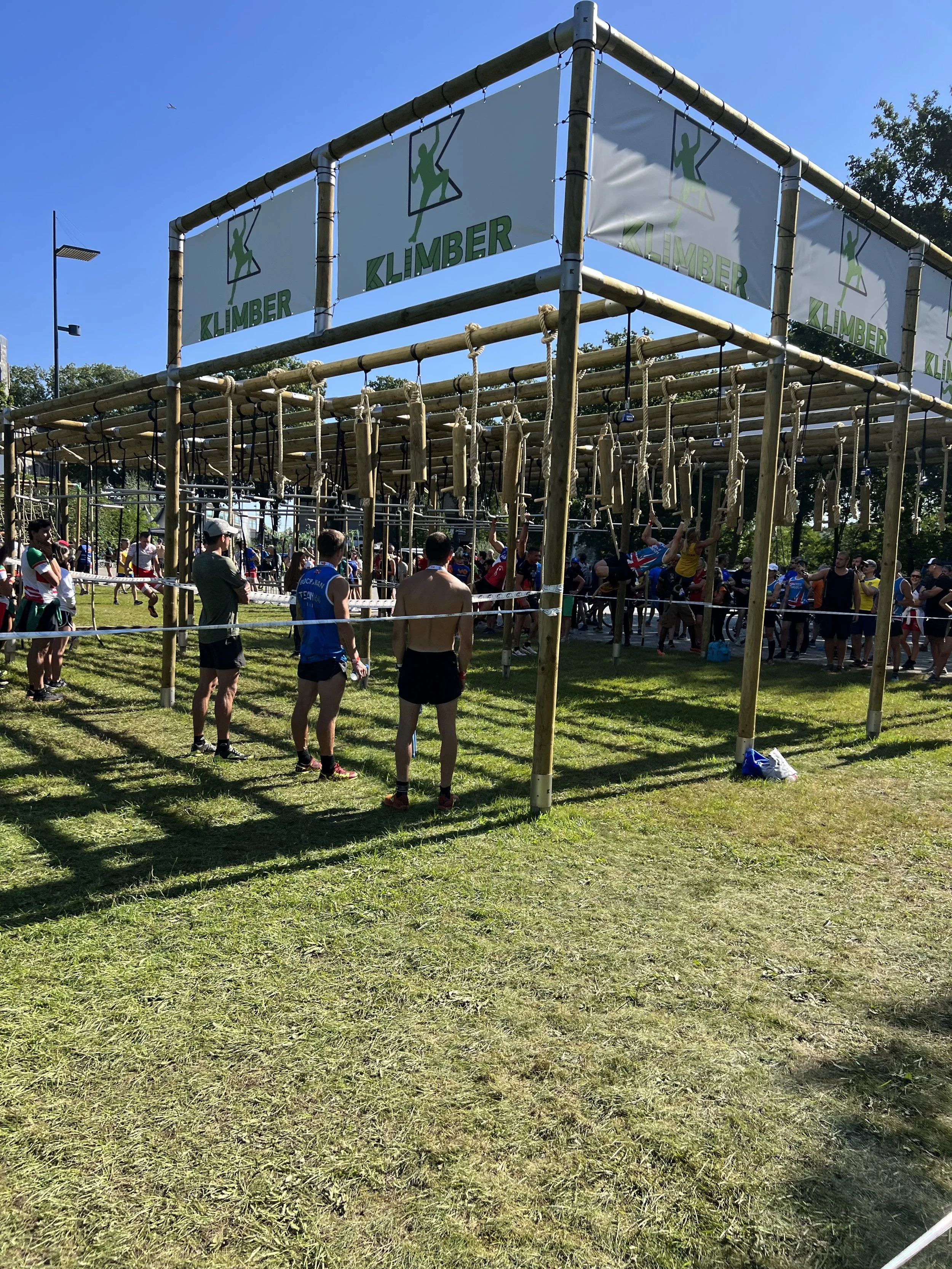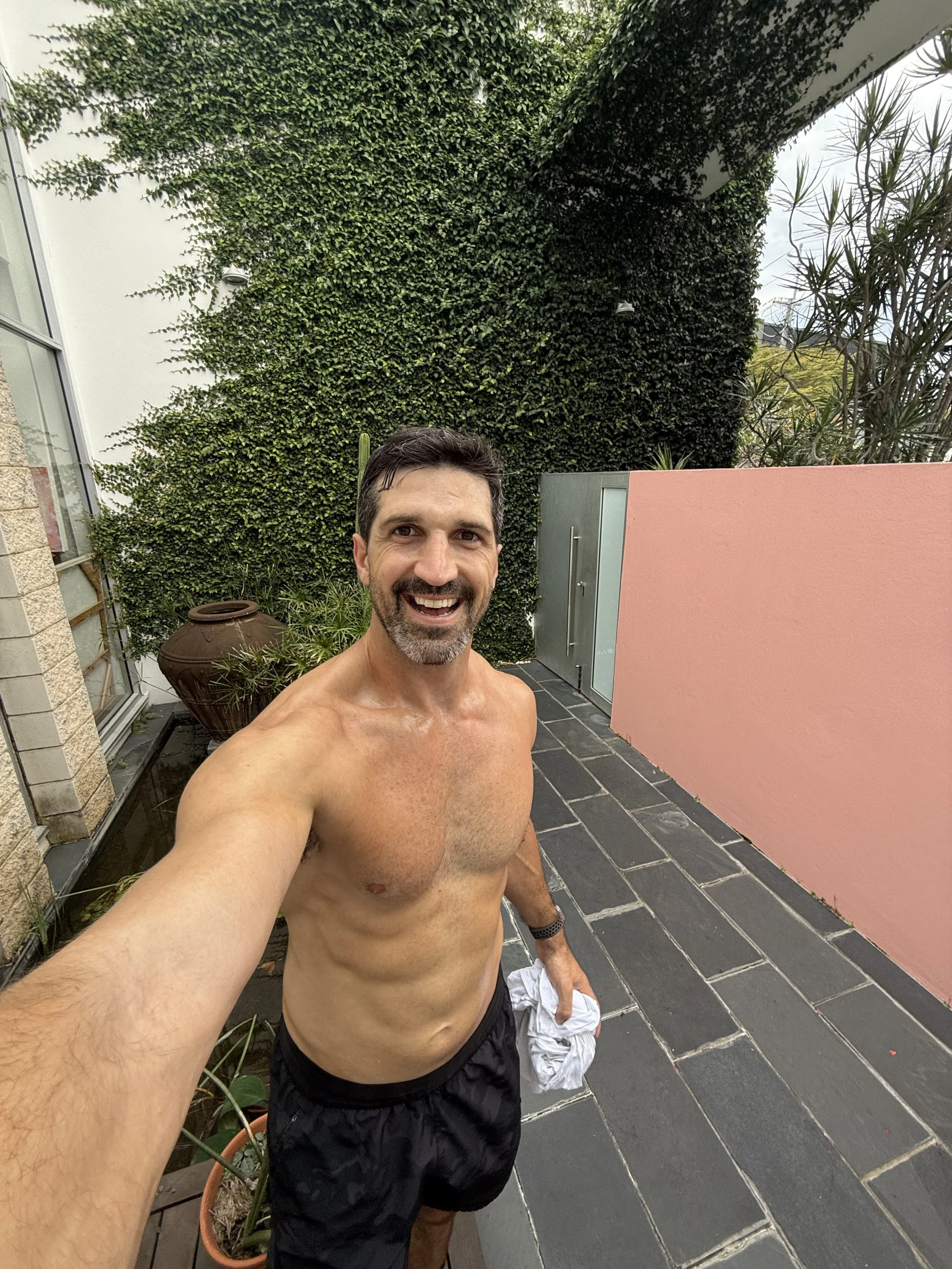Train Your Body, Master Your Mind
Most people think of fitness as something that happens in the gym—about reps, sets, or the perfect nutrition plan. But fitness is about much more than that. It’s about saying yes to life. It’s about being prepared, not just physically, but mentally and emotionally, for whatever challenges come your way.
The truth is, fitness isn’t just about the body—it’s a training ground for the mind.
Over the years, I’ve come to realise that what happens in the gym mirrors what happens in life. The discipline, consistency, and resilience you build with every workout translate directly into how you handle relationships, work, and personal setbacks. And that’s where online fitness coaching comes in—it gives you the tools to build that foundation, no matter where you are.
One of the defining moments that made me realise the power of fitness came a few years ago. I was asked to join a Spartan Race three weeks before the event. I hadn’t specifically trained for it, but because I’d maintained a solid fitness base, I said yes. It ended up being one of the most exhilarating experiences I’ve had—a mix of physical challenge, social connection, and mental grit.
That race reminded me that fitness is about keeping doors open. It’s not just about looking good or hitting personal records; it’s about having the confidence and capacity to take on whatever life throws your way. If I hadn’t been physically prepared, I would’ve missed out on that adventure.
And that’s the philosophy I bring into my coaching: We train for life, not just the gym.
The gym is just one piece of the puzzle—it’s one hour of your day. But to truly thrive, you need to look at the entire picture: how you manage your stress, your sleep, and your recovery. These things matter just as much, if not more, than the time you spend lifting weights.
I often tell clients, "You have to earn the right to train hard." That means managing stress and making sleep a priority. Training is where we build strength and fitness, but recovery is where the real growth happens. Without it, burnout is inevitable.
In every program I design, I aim to strike a balance between strength, endurance, and recovery. The goal isn’t to become the strongest or the fastest—it’s to be ready for life.
Right now, I’m training for one of the biggest challenges of my life: 58 marathons in 58 consecutive days across the US and Australia. It’s not just the physical distance that’s daunting—it’s the logistics, the unpredictability of the weather, and the challenge of being away from my wife for nearly two months. This journey will test me in ways I can’t yet predict.
That’s the beauty of fitness: it forces you to face discomfort head-on. Whether it’s running in the snow or dealing with exhaustion, these challenges build mental resilience. And once you’ve trained your mind to push through those moments, you realise that the same discipline applies to every area of your life.
Fitness is often seen as a solo pursuit, but community plays a crucial role in long-term success. That’s why I host quarterly workshops and in-person catch-ups with my online clients. These events are more than just workouts—they’re a chance to reflect, reset, and reconnect with what matters.
I’ve seen the power of these gatherings firsthand. Clients walk away feeling refreshed and refocused, ready to take on the next quarter with renewed energy. There’s something special about being surrounded by people who are also striving to be their best—it reminds you that you’re not alone in the journey.
Fitness isn’t just about hitting short-term goals—it’s about evolving with every phase of life. One of my clients initially came to me for weight loss. But as we worked together, his goals shifted. He fell in love with running and eventually started training for his first half-marathon.
That’s the beauty of sustainable coaching—it adapts as life changes. We don’t force intensity for the sake of it. Instead, we adjust the program to fit the client's current lifestyle and energy levels. This way, they stay consistent without burning out.
Setbacks are inevitable, whether in fitness or life. One of my clients recently hit a rough patch—his work schedule became overwhelming, with late nights and early mornings. He felt guilty for not giving 100% in his sessions, but instead of pushing harder, we modified the intensity to match his energy levels.
Sometimes, progress isn’t about doing more—it’s about doing what’s manageable in the moment. Once his schedule eased up, he was able to bounce back without losing momentum.
Personally, coaching has taught me that it’s okay to ask for help. I work with a coach for my marathon training, and it’s a relief to show up without having to think about programming. Having someone invested in my success allows me to focus on execution—and that’s a gift I try to give my clients as well.
Wearable technology has transformed the way we coach and track progress. I use WHOOP data to monitor my clients’ sleep, heart rate variability (HRV), and recovery. This information allows us to make smarter decisions—whether to push harder or dial back.
One time, a client’s data revealed several nights of poor sleep. Instead of forcing a high-intensity session, we dug deeper and discovered personal stressors causing the sleepless nights. Once we addressed the root issue, his performance improved, and he was able to double down on his training.
Fitness is about awareness—of both the body and the mind. Understanding how lifestyle factors affect performance helps clients take control of their health.
The fitness industry will always see trends, but the fundamentals will never change. Strength training, conditioning, and smart recovery will continue to deliver results. The key is keeping it simple and using data to guide progress.
In the next few years, I believe fitness coaching will continue to revolve around accountability and results. People won’t pay for services they don’t use—they want to see real progress, and they need coaches who can help them get there.
At its core, fitness is about more than physical health—it’s a way of showing respect for yourself. When you take care of your body, you’re saying that you matter. You can’t pour from an empty cup, and taking care of yourself allows you to show up fully in other areas of life.
Fitness builds confidence, mental clarity, and emotional resilience. It’s not just about looking good—it’s about being prepared for whatever life throws your way.
Online fitness coaching gives you the flexibility, accountability, and support to thrive—no matter where you are.
If you’re ready to take control of your fitness and build a life you love, I’m here to help.
Check out a few 12 week programs available:

